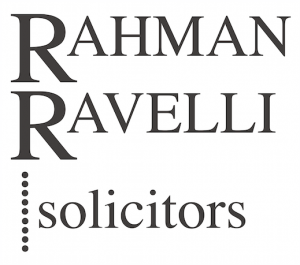Bribery and you – Steps you can take to avoid falling foul of the law on bribery

Aziz Rahman, of award-winning business crime solicitors Rahman Ravelli, on lessons that must be learned when it comes to bribery in business.
FIFA has opened a bribery investigation into its former president, Sepp Blatter. Rolls-Royce has paid £671M to settle bribery allegations. The vice chairman of Samsung has been arrested over bribery claims.
Bribery in business is widespread. And those in business need to know how to avoid being implicated, as our years defending companies, executives and individuals leave us in no doubt that the UK bribery law is the world’s toughest.
Bribery Act
Under the UK’s Bribery Act 2010 , any company or individual with a UK connection can be prosecuted for bribery carried out anywhere on its behalf by staff, an intermediary, third party or trading partner. It is an offence to commit bribery, be bribed, bribe foreign officials and fail to prevent bribery being committed on a company’s behalf.
The penalties are a maximum of 10 years’ imprisonment for individuals involved and unlimited fines. An individual or company can be prosecuted, no matter where in the world the offence happened.
Putting it bluntly, companies and individuals have to know how to make sure it does not happen. Not knowing it is happening is no defence.

There is the defence under the Act of having “adequate procedures” in place to identify the risks of bribery and to prevent it happening. This means that companies need detailed anti-bribery measures in place. If you haven’t got them in place already, you need to act quickly.
Expert legal advice is available when devising procedures. But the following actions will go some way to preventing bribery and convincing the authorities you did everything you could:
- Carry out due diligence on companies and individuals you are likely to trade with or employ. Is there anything to suggest their involvement in bribery? Do they know about the Bribery Act? What have they done to minimise their risk of involvement in bribery?
- Make sure someone in a senior position within the company knows the details of the Bribery Act.
- Conduct an internal investigation of your company’s activities to spot the potential for bribery; making it easier to prevent.
- Self-report any bribery that you uncover in your workplace. This is likely to mean a more lenient penalty than if the authorities discover the bribery for themselves. If an internal investigation uncovers wrongdoing, self-reporting it can be a useful tactic.
This last point can be important if there is a chance of securing a deferred prosecution agreement (DPA). Under a DPA, a company where bribery has been identified has a prosecution suspended for a set period of time provided they meet certain conditions. If they meet those conditions, there is no prosecution.
Bribery is a major priority for the Serious Fraud Office (SFO). The Bribery Act gives the SFO the power to come down hard on those it suspects of bribery.
Those in business need to be equally determined to ensure they do not become involved in it. Doing nothing is not an option. If you don’t know what to do, seek advice before it’s too late.
Aziz Rahman is founder of Rahman Ravelli; a top-ranked business crime law firm in national and international legal guides.
www.rahmanravelli.co.uk








